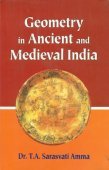Narayanapandita, Nārāyaṇapaṇḍita, Narayana-pandita: 3 definitions
Introduction:
Narayanapandita means something in Hinduism, Sanskrit. If you want to know the exact meaning, history, etymology or English translation of this term then check out the descriptions on this page. Add your comment or reference to a book if you want to contribute to this summary article.
In Hinduism
Ayurveda (science of life)
Source: Indian Journal of History of Science: Jvaranirnaya: a rare monograph on diagnosis of fevers from the pre-colonial eraNārāyaṇapaṇḍita (नारायणपण्डित) or “Śrī Nārāyaṇa Paṇḍita” is the author of the Jvaranirṇaya: an Ayurvedic manuscript dealing exclusively with types of jvara (fevers) from the 16th century CE.—The author of Jvaranirṇaya, Śrī Nārāyaṇa Paṇḍita is known to be the disciple of Nāgeśa and the son of Kṛṣṇa Paṇḍita. He is also identified to be the younger brother of Nāganātha who was one of the teachers of Lakṣmaṇa Paṇḍita who wrote Nidānapradīpa (Meulenbeld 2002). Sri Nārāyaṇa Paṇḍita is also the author of Vaidyavallabhaṭīkā and Siddhāntasaṃcaya which are the commentaries of the texts Siddhāntacikitsā and Śārṅgadharā’s Triśatī respectively (Meulenbeld, 2002 , p. 265). The time period of this treatise is corroborated to be sixteenth century CE from the fact that Śrī Nārāyaṇa Paṇḍita has written a commentary for Śārṅgadharā’s Triśatī on jvara which was written in fifteenth century CE.

Āyurveda (आयुर्वेद, ayurveda) is a branch of Indian science dealing with medicine, herbalism, taxology, anatomy, surgery, alchemy and related topics. Traditional practice of Āyurveda in ancient India dates back to at least the first millenium BC. Literature is commonly written in Sanskrit using various poetic metres.
Languages of India and abroad
Sanskrit dictionary
[Sanskrit to German]
Sanskrit, also spelled संस्कृतम् (saṃskṛtam), is an ancient language of India commonly seen as the grandmother of the Indo-European language family (even English!). Closely allied with Prakrit and Pali, Sanskrit is more exhaustive in both grammar and terms and has the most extensive collection of literature in the world, greatly surpassing its sister-languages Greek and Latin.
See also (Relevant definitions)
Partial matches: Narayana, Pandita.
Ends with: Sheshanarayanapandita.
Full-text (+85): Narayana Pandita, Shabdamanjari, Shabdabhushana, Likuci, Advaitakalamrita, Navaratnapariksha, Bandhyatvakarakopadravaharavidhi, Narayana pandita dharmadhikarin, Pishtapashukhandanamimamsa, Nripodanta, Pishtapashumimamsa, Shrutiranjani, Sadacarasmriti, Shivastuti, Mahipati, Narayana, Parijataharana, Pralapaka, Antardahardhita, Jihvakakranta.
Relevant text
Search found 3 books and stories containing Narayanapandita, Nārāyaṇapaṇḍita, Narayana-pandita, Nārāyaṇa-paṇḍita; (plurals include: Narayanapanditas, Nārāyaṇapaṇḍitas, panditas, paṇḍitas). You can also click to the full overview containing English textual excerpts. Below are direct links for the most relevant articles:
Chaitanya Bhagavata (by Bhumipati Dāsa)
Verse 3.8.36 < [Chapter 8 - Mahāprabhu’s Water Sports in Narendra- sarovara]
Introduction to chapter 8 < [Chapter 7 - Pastimes in Śrī Gadādhara’s Garden]
Reviews < [November-December 1933]
The Buddhist Philosophy of Universal Flux (by Satkari Mookerjee)
Chapter IX - The Mīmāṃsā Theory of Soul < [Part I - Metaphysics]
Related products
